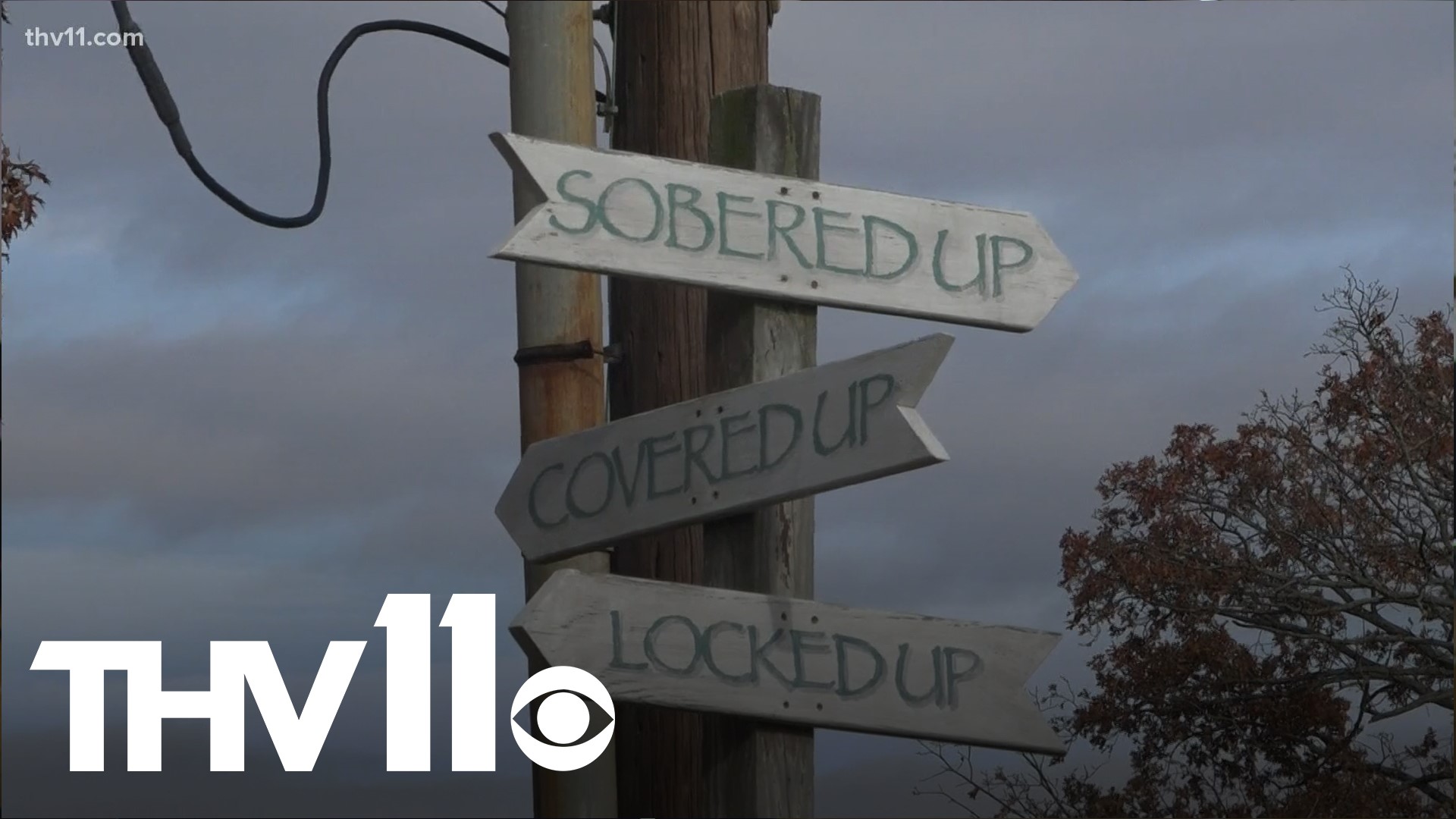LITTLE ROCK, Ark — The holidays are a time of celebration, but can be tough for people who are struggling with addiction.
Kyle Brewer is a Peer Recovery Specialist at UAMS.
His day-to-day includes providing different ways that a person struggling with addiction can connect with him. Doctors, social workers, or nurses may refer patients to start the process of recovery with Brewer.
"I just meet them where they are in the hospital and just kind of walk through those next steps with them. Whether that's just having a conversation, or that's getting connected to recovery treatment resources," said Brewer.
He's been a peer specialist at the hospital for over two years.
He often dawns a watch everyday that has a date on the inside.
"My mom started doing this thing that on my sobriety date, which is July 10th-- she gets me a watch and this was for my 3-years and it says 'By the Grace of God,'" said Brewer.
He said he was frequently drinking and smoking marijuana in high school.
Then as an 18-year old freshman in college, he got his wisdom teeth removed and received a prescription for oxycodone.
That's where his addiction started.
He began using more harder drugs, such as heroine, which would later lead to him getting arrested and eventually becoming homeless.
"The holidays for some people are a good time and positive time, but for people that may be struggling with addiction they may not have their families any longer," said Brewer. "I know I've spent a couple of Christmases alone because of the lifestyle I was living. They had to disconnect from me."
Many may have to spend their holidays inside of a recovery center.
Josh Foster is the Discharge Coordinator for Serenity Park Recovery Center.
Outside the building sits a sign pointing in three different directions that reads, Sobered Up, Locked Up, and Covered Up.
On one side of the recovery center sits the Pulaski County Detention Center, and across the street is a cemetery.
"So one of these signs, the 'sobered up' points to our building. The 'locked up' points to the county jail, and the 'covered up' points to the cemetery, because when you have an active addiction those are your three options," said Foster.
He said the facility is almost at capacity as they head into the holiday season.
This is a time that can trigger struggle in many people.
"There's trauma that can be brought up in a holiday setting. There's often time alcohol that goes along with the holidays, because there's a party at family gatherings," said Foster.
He encourages family and friends to be overly supportive.
Don't force anything, but look out for warning signs of use.
"Any sort of mood change. Any sort of behavior change. Any sort of isolation," said Foster.
Brewer said the last thing you'd want for someone in recovery to do is relapse.
"When you get into recovery and you're not using it every day, naturally that tolerance goes down. So, if something were to happen and you were to return to use, there's a significantly higher chance that you could overdose," said Brewer.

